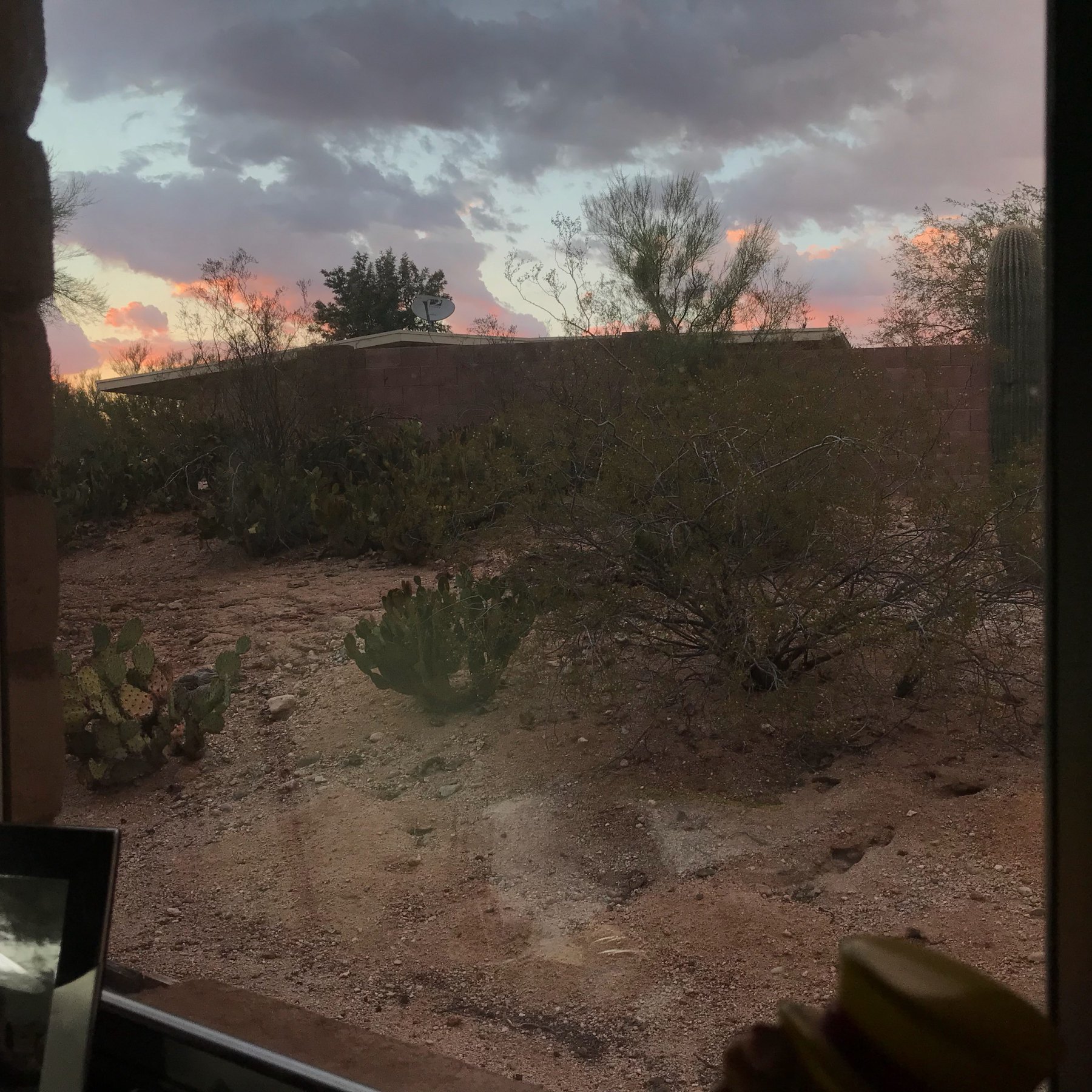NewsGuard uses a set of criteria to tell you if a news organization is trustworthy. And they just made plugins available for Chrome and Microsoft Edge. I’m curious to see how this develops.
I’m working to improve my Hebrew over the next few months with help from Matthew Patton. Thankful for my brother and for MTIOPC. Now, let’s get some results!
Wow. A father and son record their scary drive through a wildfire.
📷 from my study. This honeycomb party-ball hangs over my desk. Someday, I might replace it with a plant or a used chandelier.

I finished The Writer’s Diet by Helen Sword. It is a brief guide to writing well. And it explains how to properly use the WritersDiet online test. Very helpful! Has anyone read her other books? 📚
⛪️ My a.m. sermon on Psalm 104; the first in a series on wisdom.
O LORD, how manifold are your works! In wisdom have you made them all; the earth is full of your creatures.
Finished: Wisdom Christology by Daniel J. Elbert IV. He answers the question, “Why seek wisdom in Christ?” by introducing readers to six important passages of Scripture. If you’ve never thought about this subject before, this book is a good place to start. (25-page preview) 📚
dare, drill, cram, hide, ambush, sling, haunt, walk, grapple, trade, sing, purr, absorb, suffuse, contract, plow, approach, convert, uproot, defy, and cleave
21 Verbs You Can See
I like the new Indiepaper integration. Since “read later” articles can be accessed within one’s account, I wonder if they could be accessed within the app someday. Thanks @manton for all your hard work.

I finished Paul’s Theology of Preaching: The Apostle’s Challenge to the Art of Persuasion in Ancient Corinth by Duane Litfin. It’s a masterwork of biblical exegesis. He reveals a gospel-shaped rhetoric that is perfectly tailored for preaching. Loved it. 📚
Master, the scribes are getting restless.
Proverbs tells us that fools ignore the world God has made. They live their lives against the grain and then suffer for it. Wise people, on the other hand, reflect on the world, learn from it, and tend to succeed.
But you can’t reflect on something you haven’t observed. Wisdom starts with paying attention. You have to look around and spend time noticing things.
If that makes sense to you but you’re not sure what to look at, Gavin Pretor-Pinney, a U.K. graphic designer who founded the Cloud Appreciation Society, suggests in his TED talk that you look at—you guessed it—the clouds.
Most of us, he says, ignore the clouds until they block the sun. And then we notice them only as “annoying, frustrating obstructions,” before we “rush off and do some blue-sky thinking.”
That being said…
most people, when you stop to ask them, will admit to harboring a strange sort of fondness for clouds. It’s like a nostalgic fondness, and they make them think of their youth.
Who here can’t remember thinking of looking and finding shapes in the clouds when they were kids? You know, when you were masters of daydreaming.
It’s just that these days, us adults seem reluctant to allow ourselves the indulgence of just allowing our imaginations to drift along in the breeze. And I think that’s a pity. I think we should perhaps do a bit more of it.
I think we should be a bit more willing, perhaps, to look at the beautiful sight of the sunlight bursting out from behind the clouds. And go wait a minute - there’s two cats dancing the salsa, or seeing the big - the big, white, puffy one up there over the shopping center looks like the abominable snowman going to rob a bank.”
These were the clouds outside my study window tonight.

Excerpt: Notes Nearing Ninety: Learning to Write Less by Donald Hall (HT: aldaily.com)
I had planned to start teaching A Stronger Servant last week but had to postpone in order to prepare for my new sermon series on wisdom. These sermons and this class should be mutually reinforcing. I’m getting pretty excited about it.
Definition of the wisdom of God:
That perfection of God by which He uses His knowledge for the attainment of His ends in the way that glorifies Him most.
💬 Geerhardus Vos
I just noticed that the Kindle editions of Vos’ Reformed Dogmatics are 80% off right now, only $5.99 per volume! They’re usually about $25/ea. I bought all five and I’m so happy to finally have these.
Want free Greek/Latin lessons taught by an A+ classicist and educator? Check out latinperdiem.com by my friend, David Noe (Calvin College).
In that last Gregory quote, Gregory was commenting on the book of Jonah. I thought I was done preaching on Jonah for now, but a farmer asked me: Aren’t you going to preach on the last four words, “and also much cattle”? So, one more week. 😊
I’ll have whatever he’s having tonight 👉 @ayjay
